- Home
- Taylor Caldwell
To Look and Pass
To Look and Pass Read online
To Look and Pass
A Novel
Taylor Caldwell
Chapter One
If Dan Hendricks had been born thirty or so years later, things would not have happened as they did. He could have gotten away after his wife’s death and begun again easily. Ease of transportation would have helped him. According to his means, he could have taken a train or a bus or stepped on the gas and let himself down over the horizon for fifty miles, for five hundred miles, for three thousand miles. In a restless and mobile nation, he could have lost himself completely, assumed another identity, without background or past. In an era that was born anew each morning, without roots and without sharp memory, he, too, could have been born anew, started at the first dawn again. But he was born too early, born when even cities thrust roots deeply and when every stranger in a community had to give an accounting of himself. Memory was long then; things did not happen so quickly, and events did not tread feverishly on each other’s heels as they do now. People remembered what they read and heard. Life was so quiet and static that even a distant thunderclap could be clearly heard.
This very quiet made it impossible for a man to forget. And this was the most important part of all. If a man lives in a forgetting world, he does not find it very hard to forget, either. Where there is so much change, all changes become equally unimportant. A quiet woman is remembered a long time for a few pungent words, but a woman who constantly chatters creates a psychic deafness in her audience, so that when she does speak with meaning, the very meaning is unheard.
Dan’s tragedy was that neither he nor the world could forget, though what each remembered was entirely different. He could not run; the world’s voice would have followed him down into his grave. Moreover, he did not want to run. There are men like that, foolish or heroic men, whichever your turn of character would have you believe. I prefer to think he was both foolish and heroic. But I do not see what else he could have done, the world being what it was then. It was only his attitude which made him seem to me both foolish and heroic. But that was before I understood him.
We went to school together, Dan Hendricks and myself, to the red schoolhouse of politically revered memory. Two little girls went to school with us, also. We remembered them best, for they became our wives. I’ve never really regretted marrying Livy, that is, not more than most men have regretted marrying the women they did. Livy was, and is all right, no worse than many women and a great deal better than most. We’ve lived forty years together come next Christmas, and we’ve never missed the children we might have had but didn’t. There’s a lot of foolishness written and said about the beauties of parenthood and the happiness children bring. I’m not so blind, and it seems to me that children bring you precious little joy and a whole lot of misery. No, we’re not sorry we were not “blessed” with children. We’ve had long years to ourselves, and very few sleepless nights, and countless hours for reading and peace and learning understanding. Children do rob you of living; they’re always on you, always exigent, even when they’re middle-aged and you’re ready for the grave yourself. They do more than merely deafen your ears physically with the noise of their growing; they deafen your mind, too. When you’re a father, you’re only half a man in spite of the pretty poetry and the Bible. You can’t strike hard at life when you’re afraid that the blow you deal might rebound and hit one of your children. So life which is a yellow dog at heart, leaps at your throat because you are afraid to use your whip.
But this history isn’t mine, and I’m not going to tell too much about myself. A writer or a historian must always keep in the background, more for self-defense than for a regard for real literature or history.
The other little girl we went to school with was the daughter of a widow, the town seamstress. She was a good seamstress, and there was some money, too, left by the husband, Jacob Faire. Mrs. Sarah Faire and her little girl, Beatrice, or Bee, lived very comfortably in their tight white house near Big Bend. South Kenton wasn’t really a town in those days; it was just a sort of swollen village, though I will say it had all of the orneriness and goodheartedness of a town ten times its size. Thirty or forty years ago it was just like any other village in the country, sleepy, sunny, lazy, rambling, quiet, and “nosy.” It seemed to sleep all alone in the valley, wrapped in sunshine or snow, living intensely only about every few years when someone married or died or got put in jail. But, underneath, each little life felt itself very important and exciting, just as the ants do coming and going busily to their sandy hills, when you watch them on a hot, still summer afternoon.
Mrs. Faire sewed for all the village housewives, even the mayor’s wife, who could have gone to Ripley for her clothes. She also sewed for the farmers’ wives, when they felt the crops had been good enough so that they felt no need to run up their clothes for themselves that year. She was right handy with her needle and outlandish sewing machine, and could make a piece of woolen cloth look miraculously stylish even on a fat woman. In these days she would have opened a smart little shop, narrow and bright, with the word “Modiste” printed in gold on a beveled window, and charged ten times the price. She would have had her hair tinted and ridged, and used good perfume, and kept her hips down, and said “Madam.” But she lived in the days before real civilization and was quite content. She was modern in a way, too; she adjusted her prices to her customers’ purses. When Livy and I were married, she made Livy’s whole outfit for a song, and I never did forget it. That was because she liked Livy. But then, most everyone did.
Sarah Faire was still young, according to modern standards. About thirty-five or so, when little Bee was twelve. But then she was considered old, or at least middle-aged, even though her figure was still good and her light red hair naturally curly and gay in spite of the nets and pins. She had a clear and creamy complexion, and a wide red mouth with dimples, and a soft neck. Her eyes seemed to dance all the time, as though she were having a joke with herself. That was funny, too, for living with Jacob Faire hadn’t been any joke. It had been a sentence. He had been twice her age and had kept the general store. She probably married him for his money and because she was sick of teaching school. Perhaps the joke she always seemed to have with herself was that she found life so delightful when she was a widow. She never thought of marrying again. Life with Jacob Faire, who was greedy, sullen, and crafty, had cured her of matrimony.
Little Beatrice was very like her father, though, physically she was strangely like her mother, too. She was like Sarah, with the shine off. She was little and plump, like Sarah, and had Sarah’s creamy skin and dimples and curly reddish hair. She even had Sarah’s russet eyes. But Sarah laughed, deeply and ringingly; Beatrice just sniggered. Sarah looked at you openly, with brown and yellow and red lights welling and shining in her eyes; Beatrice didn’t look up often, even when speaking to you, and when she did, her eyes were just flat brown, with maybe a little sharp spark of malice in them now and then. Only malice could make her eyes lighten and take on expression. Sarah was always sympathetic and warm and ready with a cheerful word; but Beatrice was cold and sly and treacherous and mean of tongue. She’s dead now; but I hated her then, and I still hate her. I’m sorry she’s dead; I’d like to say all the things to her that I wanted to say but never got around to saying. The only thing I’m glad about is the way she died. That made up for a lot. Livy says one must never judge, that there are strange and secret currents and caves and abysses and fearful countries in every human being, and you can’t judge unless you know all about them. But justice and courts and juries would be very funny things if they took all that into consideration. Why, according to that, no one would ever be convicted of anything! Sometimes, when I feel soft, I think of Beatrice and remember her father, and I wonder if Beatrice was e
ntirely to blame, after all. Sarah Faire should have been careful about the man she picked out to be Beatrice’s father. But then, what woman ever is?
Yes, I always hated Beatrice. Most people did at heart, I believe. Everyone in South Kenton knew what she was. Though folks laughed when I said it, I knew and believed that Sarah Faire finally hated her daughter, too. Folks are always shocked when they hear of what they call “something against Nature,” as though nature has any niceties or bounds or set rules of conduct! They know that lots of brothers and sisters hate each other, and folks aren’t too shocked; but when a mother or father hates an offspring, they refuse to believe that Nature could be so perverse. But Sarah Faire did hate Beatrice toward the end. She was an old woman when Beatrice died, but I remember the way she looked when we told her—
Livy has just glanced over my shoulder, and she tells me that I am rambling and not telling the story. And she adds, what is there to tell of Dan Hendricks, anyway, that couldn’t be told in three hundred words? I tell her that even the story of Creation could be written in one hundred words, if necessary; that a man could tell all he knows in one word: “Nothing.” But where would publishers and critics and authors be if stories were told in a few score phrases? Besides, though there are many climaxes and crises and excitements in the story of Dan Hendricks, there was what went on in his mind, which is worth a thousand volumes. But Livy now says that I have written enough for one chapter, and though there doesn’t seem much sense in my ending this chapter, I will have to begin another.
Chapter Two
It has always seemed to me that it is more important to tell what a man thinks than what he does, that the landscapes seen internally by only one eye are more significant and terrible and beautiful than the landscapes seen by a thousand. It would be a frightful but awesome thing to see, if only for a moment, the vast and formless country behind one blank human face, where the mind flickers like a dim flame in countless winds that never roved on land or sea.
Dan Hendricks had nothing physically to show why fate had picked him out to crush and rend and hurl and spit upon. I remember him well, how he looked when we were going to school together, a tall and lanky boy with a long face like a melancholy colt, and rather vague brown eyes. His hair was never fully cut; it clung at the back of his shaggy neck like a dull brown fringe, and one long lock was always falling over his forehead and blinding him. He would brush it away, vaguely, abstractedly, but never impatiently. It was just a nuisance to be borne. Life itself seemed to him just a nuisance to be borne without much thought of it, to be brushed casually aside in order that one might see clearly.
He was not a stupid boy, in spite of his apparent aimlessness of gesture and his slow movements and shabby clothes. He had a large, well-cut nose in his pale face, a very wide mouth, and high, clever cheekbones. There were times when he had a singular beauty of expression, soft and gentle and ironically kind. I never knew a time when he ever hurt anything or anybody. He spoke slowly, slurring his words, letting his voice die away toward the end of his sentences. He had big hands and bigger feet, but his knuckles were not large, and the fingers were slender, though fumbling. When he was a boy he had all the intrinsic gentleness and tenderness and stern integrity that he was to have when he became a man, but few besides Livy and Sarah Faire and myself seemed to know it. They never did know it, even when he was dead. To most of the folks in South Kenton, he was just a no-account, the son of the shiftless village blacksmith, living in a two-room shack behind the smithy. He wore galluses three-fourths of the time, even to church, and in the winter he merely wore a heavy, shapeless coat over them. He ran barefoot most of the time, too. He seemed to hate shoes, though I don’t believe it was because he particularly loved the good, wholesome, rich feel of the earth under his feet. I think shoes simply seemed insignificant to him. I don’t think he really loved Nature, either; he loved wild and stormy landscapes, bitter sunsets, and the dark calm before tempests. That was because he loved beauty, and loving beauty is very different from loving Nature though most folks won’t agree.
Most folks believe that if a person is really good and honorable and high of heart, everyone will love him, feeling instinctively all his virtues. That isn’t so. I knew what Dan Hendricks was, and so did one or two others, but the majority of the people in South Kenton despised him and despised his father. Folks in the mass are very stupid and blind; they see only the mud on thick boots, the grime under fingernails, and the need of a shave or a haircut. They saw only that Sam Hendricks drank every penny he could lay his hands on, that he was godless, illiterate, and profane. They saw that Dan showed no more ambition than did his widowed father, and that Dan would sit slackly by the hour staring at the sky with his mouth open, the bucket he had been sent to fill, empty at his side. Like folks all over the world they believed that loquacity shows an active mind, and that feet that scurry are feet that are going somewhere.
My father was the old-time country doctor of popular memory. I will not add, “And may his tribe increase.” It’s a good thing for the country at large that the old-time doctor is disappearing; folks’ll live longer for it. Not that my father was any more ignorant or superstitious or hidebound than others of his profession in those days; but he did not know too much. My mother had been a “school-marm,” and never forgot the fact. She, it was, who instilled what pride my father had in him. Therefore, they objected peevishly and harshly to my love and friendship for Dan Hendricks. Mother had inherited a little money, and we lived in one of the best houses in the village. I was never allowed to invite Dan there. I tried, awkwardly and blushingly, to explain why not to Dan, but he stopped me halfway with a slight, amused smile, as though he was surprised that I thought the matter important enough to talk about.
Livy, my wife, was the daughter of the town “reverend,” and had two other sisters. Livy, too, was forbidden to play with Dan Hendricks, though she always disobeyed without any pangs of conscience that I could discover. She petted and pitied and teased Dan, and when we were youngsters I often suffered jealousy because of the evident affection Dan had for her. I wanted both of them to love only me. They knew it and laughed at me. But no one could help loving Livy then, for her smallness and darkness and plumpness and gay dimples and dancing braids of hair.
The children at school did not like Beatrice Faire, even though her mother dressed her exquisitely for those times, and she was always dainty and clean and had many pennies to spend for licorice shoelaces and molasses apples and hard, round lemon drops at the general store. She would spend the money lavishly on her schoolmates, not out of generosity, I knew, but merely because for a time she could buy the regard and respect of those she felt hated and snubbed her.
Yes, they hated Dan, too, as much as they hated Beatrice. They laughed at his shabbiness. For years they joked about the time Dan carried his shoes slung over his shoulder on the way to school, then sat down carefully in the dust near the door and put them on. But there was something good-natured in their dislike of Dan; they often included him, when necessary, in their games. But in their hatred of Beatrice there was something malevolent.
Dan, I found, pitied Beatrice. I thought, when I was young, that it was because the children snubbed her; I found out, years later, that he pitied her because of what she really was. He tried a few times to be kind to her, and gentle, but she repulsed him with such venom and loathing that he fell back.
Livy was kind to everyone. She was even kind to Beatrice, whom she really could not bear. Beatrice responded to this almost pathetically; she dogged Livy whenever she could, followed her constantly, was included in many things in order that the others could obtain Livy. “You’ll ask Bee, too, or I won’t come,” Livy would say flatly. So Beatrice came. The little girls always walked hand in hand together, light red head bobbing beside dark head, ruffled skirts or plaid wool frocks mingling and blowing together. But what a difference in the faces beneath hoods or sun-bonnets or knitted woolen caps! Livy’s face was so open, so smiling and
fearless and generous, though not as pretty as Beatrice’s. Bee’s face, in spite of its pink-and-whiteness and dimples and small red mouth and russet eyes, was so sly, so crafty, so mean, that all its beauty seemed an uncertain kind of ugliness.
Beatrice was always at Livy’s home. The Reverend Isaac Bingham and his wife, Livy’s parents, were very fond of Beatrice, in the blind manner of adults. They lauded her pretty manners, her respectful manner of speaking, her little curtsies, her spurious shyness, and soft voice. They thought their tomboyish and rollicking little Olivia could profit from the association. But I knew that it was only Livy’s inherent integrity and fine nature that kept her from the pollution that Beatrice literally exuded from her whole body. The reverend and his wife did not know that Livy not only did not like Beatrice, but had a real contempt for her, and that she only befriended the child because she could not endure that even a mean thing be trampled upon.
The society of the little town-village was very tight and close. Only about a dozen families were included in it; mine, Beatrice’s, Livy’s, Dave King’s, Bob Cunningham’s, Matilda Hughes’s, Willie Williams’s, Amelia Burnett’s, Mary Knowles’s, Jane Mundell’s, Susan Crawford’s, and Jack Rugby’s. Dave King’s father was an old man, though Dave, at the time I speak of, was only twelve years old. Endicott King had been married three times, the first two without issue. He had married one of my mother’s second cousins, a young girl some thirty years younger than he, and she had borne him this one child. Endicott was a retired farmer, comfortably situated and with extraordinarily fastidious manners and luxurious tastes. They lived in a large white stone house near Hamsville Pike and had two hired girls. Bob Cunningham’s mother was a widow; her husband had been the owner of the shoe factory in Ripley; and on his death she had retired to her old home on a comfortable annual income. Matilda Hughes’s father was Ezra Hughes, president, vice-president, secretary, and manager of South Kenton’s one and only bank, a shrewd and miserly and pious rascal. Willie Williams’s father was Tom Williams, a lawyer of pompous appearance and sonorous tongue; Amelia Burnett’s papa was Mark Burnett, mayor of South Kenton for ten years; Mary Knowles’s widowed mother held half the mortgages in the county, it was said, and was a regular modern businesswoman who would have earned admiration even in these days for careful management and an eye for profit. Jane Mundell’s and Susan Crawford’s fathers were horse dealers of good income, while Jack Rugby’s father was Mortimer Rugby, head of the South Kenton School Department and schoolmaster of its only school.

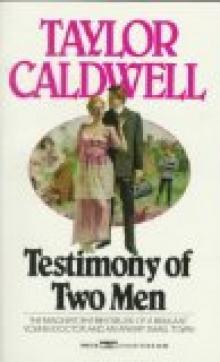 Testimony of Two Men
Testimony of Two Men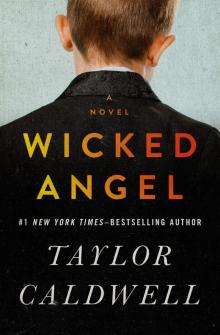 Wicked Angel
Wicked Angel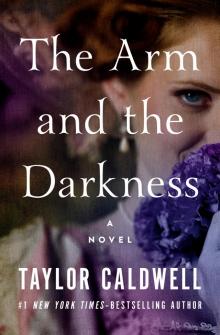 The Arm and the Darkness
The Arm and the Darkness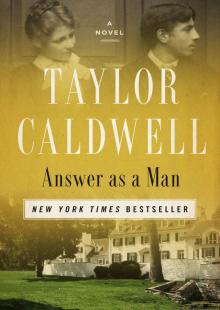 Answer as a Man
Answer as a Man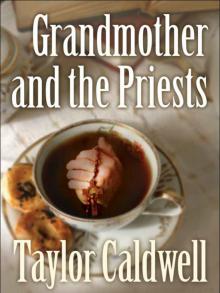 Grandmother and the Priests
Grandmother and the Priests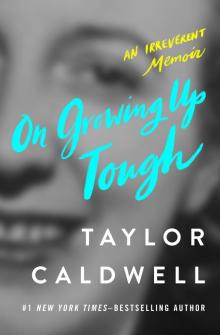 On Growing Up Tough: An Irreverent Memoir
On Growing Up Tough: An Irreverent Memoir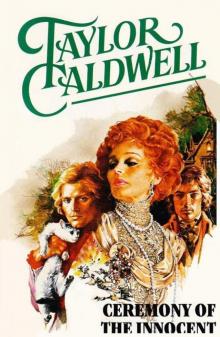 Ceremony of the Innocent
Ceremony of the Innocent The Listener
The Listener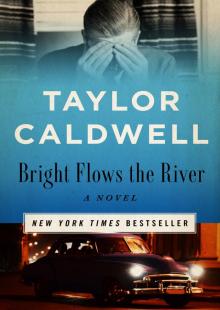 Bright Flows the River
Bright Flows the River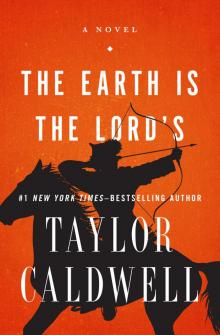 The Earth Is the Lord's
The Earth Is the Lord's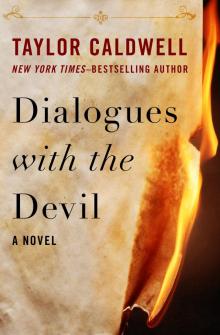 Dialogues With the Devil
Dialogues With the Devil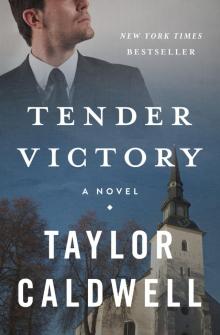 A Tender Victory
A Tender Victory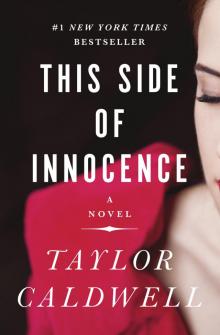 This Side of Innocence
This Side of Innocence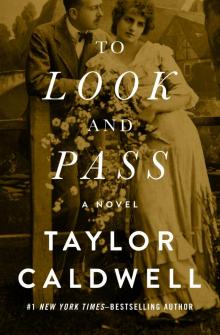 To Look and Pass
To Look and Pass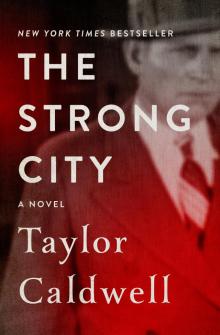 The Strong City
The Strong City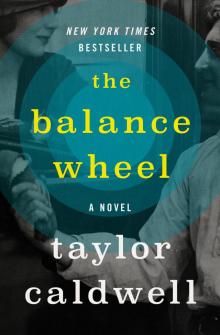 Balance Wheel
Balance Wheel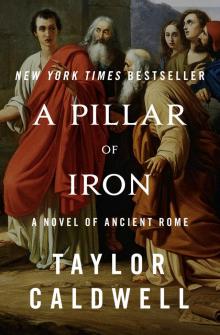 A Pillar of Iron: A Novel of Ancient Rome
A Pillar of Iron: A Novel of Ancient Rome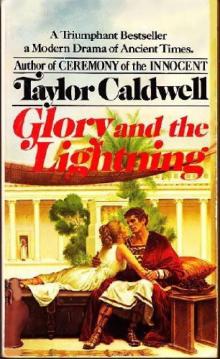 Glory and the Lightning
Glory and the Lightning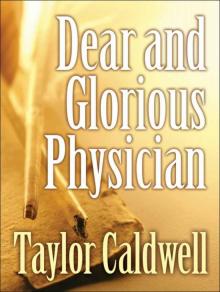 Dear and Glorious Physician
Dear and Glorious Physician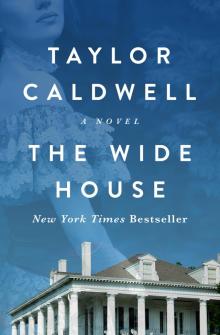 The Wide House
The Wide House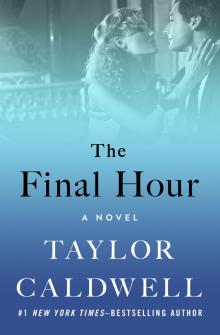 The Final Hour
The Final Hour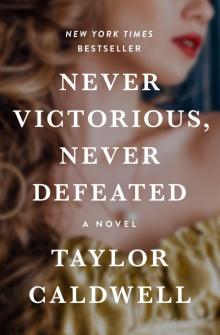 Never Victorious, Never Defeated
Never Victorious, Never Defeated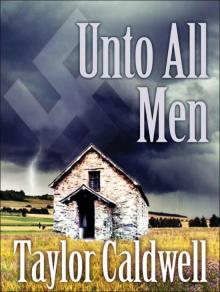 Unto All Men
Unto All Men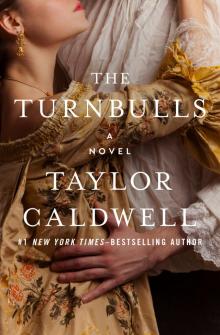 The Turnbulls
The Turnbulls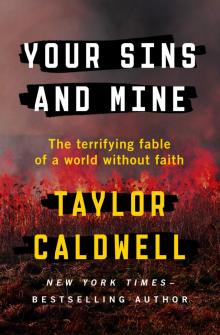 Your Sins and Mine: The Terrifying Fable of a World Without Faith
Your Sins and Mine: The Terrifying Fable of a World Without Faith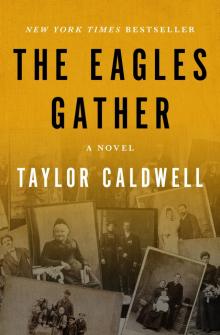 The Eagles Gather
The Eagles Gather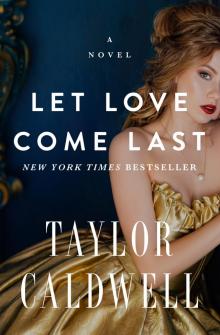 Let Love Come Last
Let Love Come Last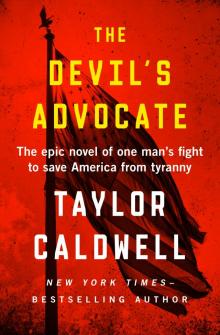 The Devil's Advocate: The Epic Novel of One Man's Fight to Save America From Tyranny
The Devil's Advocate: The Epic Novel of One Man's Fight to Save America From Tyranny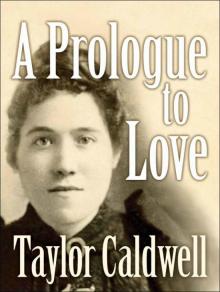 A Prologue to Love
A Prologue to Love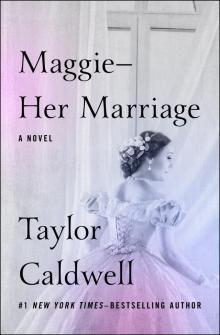 Maggie: Her Marriage
Maggie: Her Marriage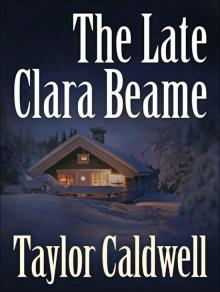 The Late Clara Beame
The Late Clara Beame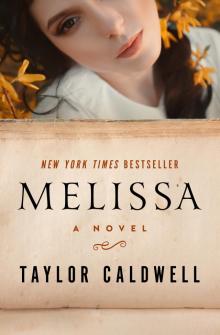 Melissa
Melissa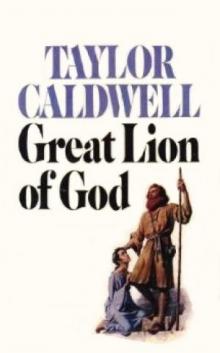 Great Lion of God
Great Lion of God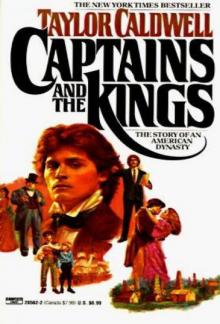 Captains and the Kings
Captains and the Kings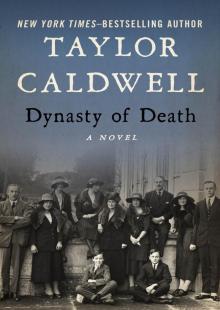 Dynasty of Death
Dynasty of Death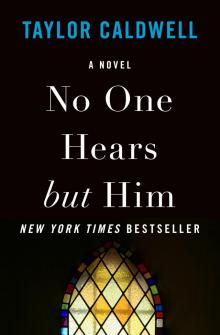 No One Hears but Him
No One Hears but Him The Sound of Thunder
The Sound of Thunder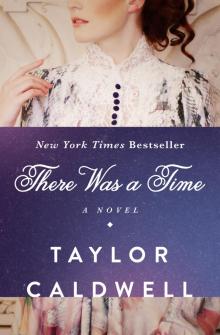 There Was a Time
There Was a Time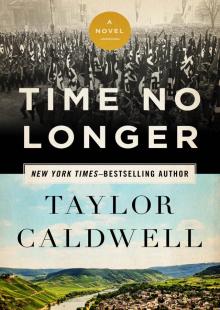 Time No Longer
Time No Longer I, Judas
I, Judas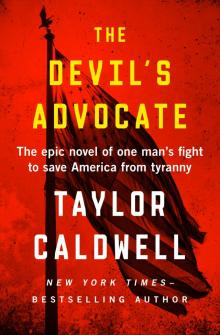 The Devil's Advocate
The Devil's Advocate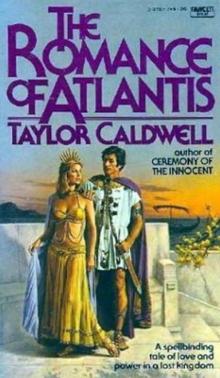 The Romance of Atlantis
The Romance of Atlantis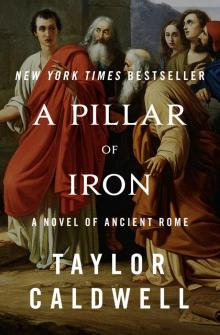 A Pillar of Iron
A Pillar of Iron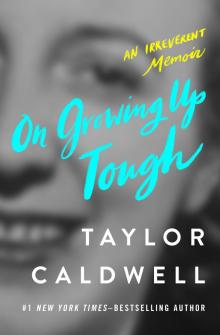 On Growing Up Tough
On Growing Up Tough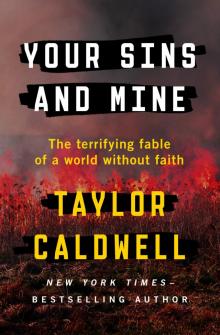 Your Sins and Mine
Your Sins and Mine